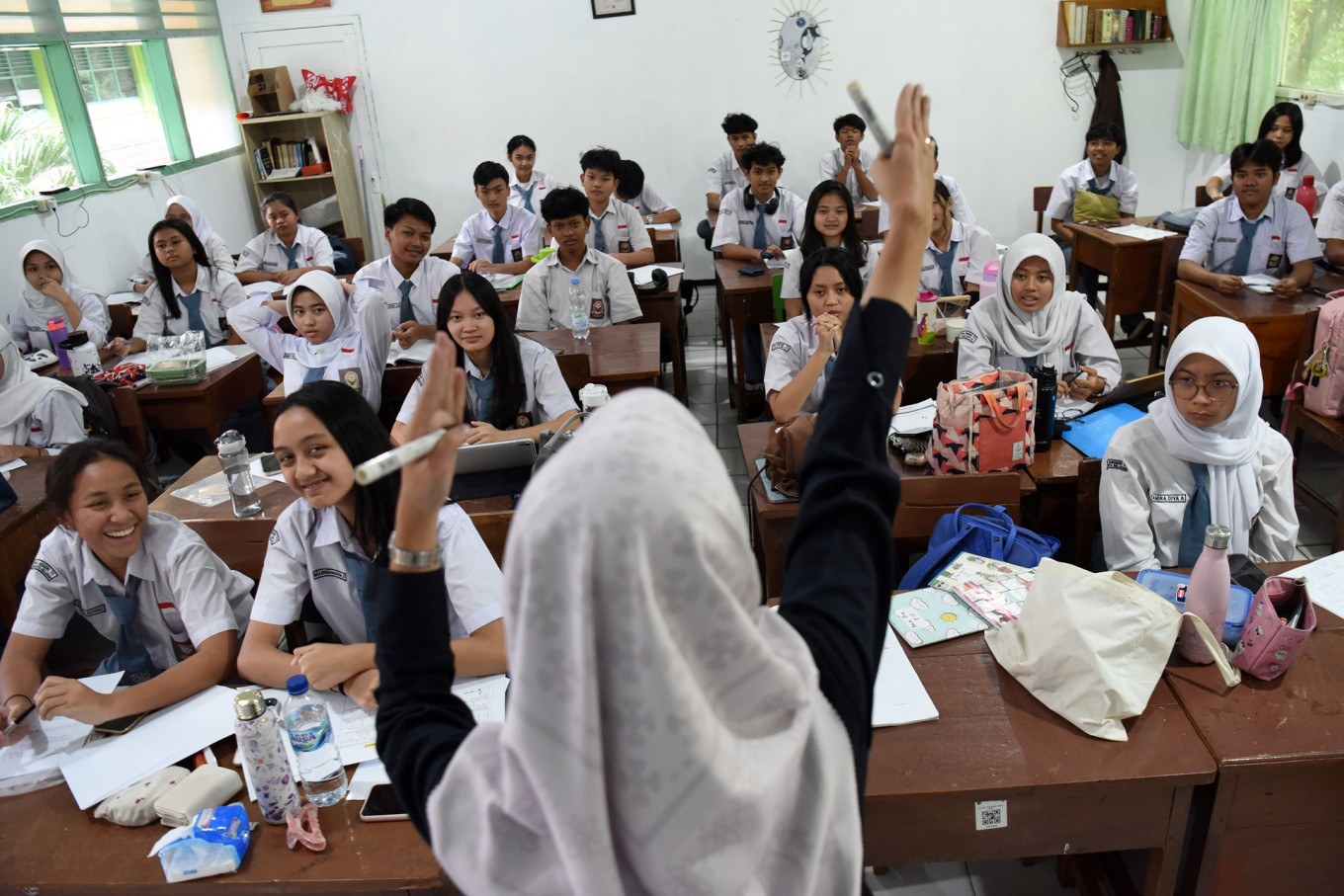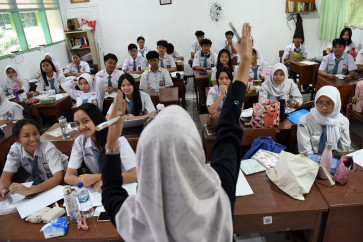Popular Reads
Top Results
Can't find what you're looking for?
View all search resultsPopular Reads
Top Results
Can't find what you're looking for?
View all search resultsCultivating prosperity through education
Education does not automatically guarantee economic success. Its real power lies in expanding one’s capacity to choose.
Change text size
Gift Premium Articles
to Anyone
T
he steady decline in poverty over the past few years offers a hopeful glimpse into Indonesia’s development trajectory. According to Statistics Indonesia (BPS), as of March 2025, the poverty rate stood at 8.47 percent, or about 23.85 million people. Economic recovery after the pandemic, stable food prices and targeted social protection have helped many households navigate an era marked by uncertainty. These achievements suggest that short-term strategies to sustain purchasing power and support vulnerable groups have worked well.
Yet escaping poverty does not mark the end of the journey. Many households that have moved slightly above the poverty line still live on fragile ground, with limited means to build economic buffers. Sustaining progress requires more than temporary relief, it demands investment in human capacity. And at the heart of that effort lies education.
Education does not automatically guarantee economic success. Its real power lies in expanding one’s capacity to choose. Education equips people with the ability to understand change, evaluate opportunities and make better-informed decisions. In the context of poverty alleviation, that translates into broader access to decent work, better resource management and the adaptability to respond to shifting economic landscapes.
Data from the 2025 National Socio-Economic Survey (Susenas) shows about 5.17 percent of Indonesians aged 5 and above have never attended school. Among those aged 15 and older, around 11.37 percent have no formal diploma, while only 11 percent have completed tertiary education. The figures reveal that most Indonesians still stop at the basic and secondary levels.
Disparities are also visible across regions. Areas with better infrastructure, transportation and educational facilities tend to have higher participation rates. Conversely, geographically isolated regions face greater challenges in ensuring school attendance and educational continuity.
For many families, the decision to continue schooling depends not only on household income but also on school availability, commuting distance and the family’s need for children to help with household chores or family businesses. When children drop out during this phase, their opportunities to acquire productive skills narrow, leading to a limited range of, and often unstable, employment choices in adulthood. Ensuring that children stay in school, therefore, is not only about providing facilities but also about nurturing family and community environments that sustain motivation and resilience in learning.
Early childhood education holds equally long-term importance. As of March 2025, about 34.38 percent of children aged 0–6 years were enrolled in pre-school education. Although this rate can still be improved, it signals positive progress in building Indonesia’s human capital foundation.



















